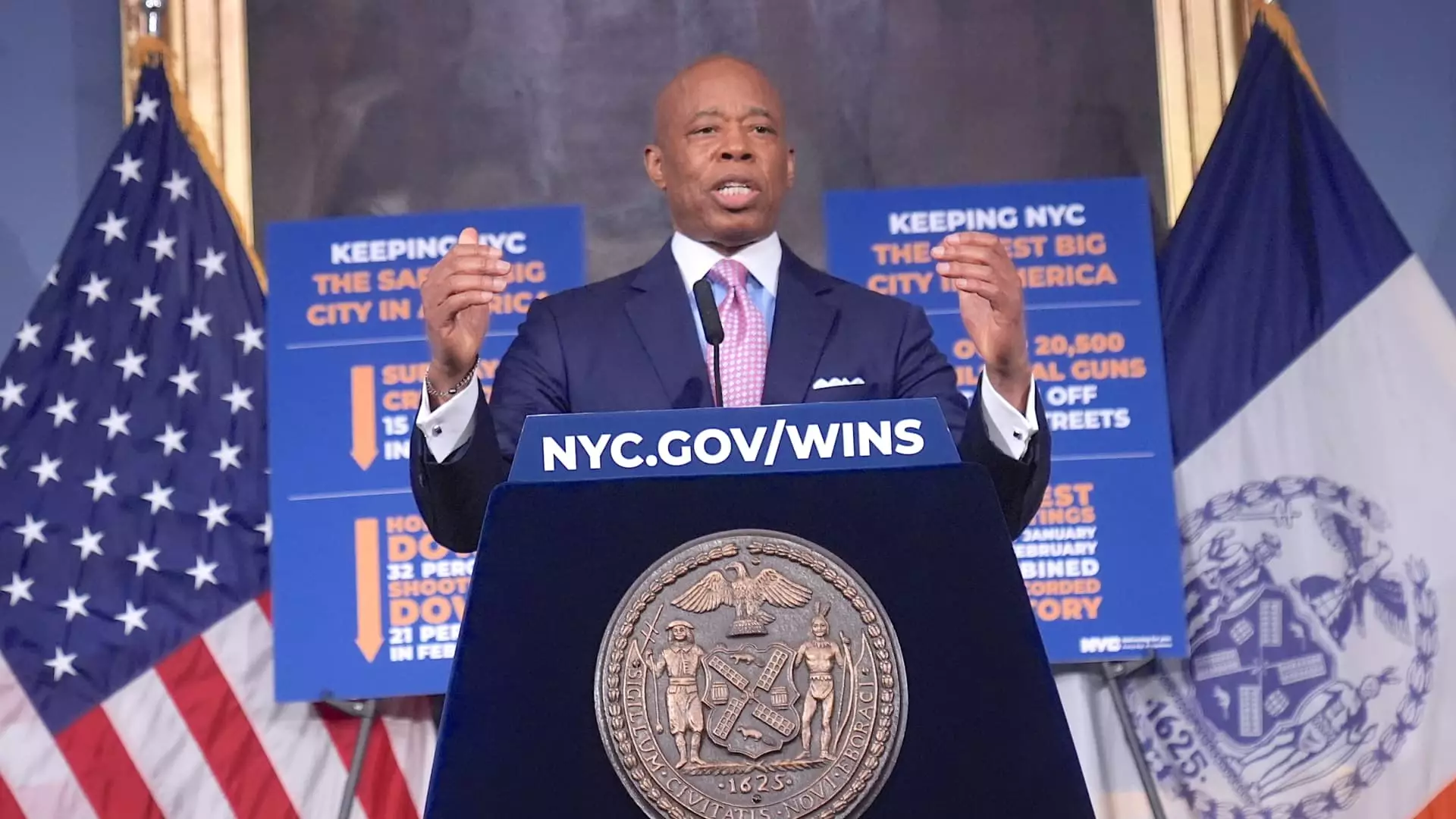In a seismic shift that rattles the very core of New York City’s political machinery, Mayor Eric Adams has announced his decision to sidestep the Democratic primary in favor of running as an independent candidate for reelection. This pivot comes immediately on the heels of a federal judge dismissing corruption charges that had cast a long shadow over his leadership. It’s an audacious move, undoubtedly calculated, yet it profoundly speaks to the zeitgeist of our era—an era that increasingly values authenticity over party affiliation.
Adams stated on social media, “I have always put New York’s people before politics and party — and I always will.” With these words, he signals a desperation for leadership that resonates with working-class citizens, who feel increasingly alienated by entrenched political parties. Adams aims to present himself as a champion of the people over the political elite, a narrative that, if conveyed effectively, could ignite support across various demographics, from the financial districts of Manhattan to the more understated neighborhoods in the Bronx and Queens.
The Weight of Allegations
The recent dismissal of bribery and wire fraud charges against Adams marks a significant turning point in his political narrative. Indicted last September for allegedly receiving lavish gifts from Turkish nationals while in public office, Adams faced a scandal that many believed could sink his political career. Yet, with federal prosecutors admitting that the prosecution could impede his ability to govern, the charges were suddenly dismissed. U.S. District Judge Dale Ho’s ruling, which emphasized the need for Adams to serve the people unfettered by legal entanglements, appears to have opened the door once more for him.
Adams himself declared in a recent interview that the accusations had been shackles on his ambitions. The metaphor of a “racehorse held back” is striking, encapsulating not just his personal struggle but also the broader narrative of public officials who often feel restrained by legal and political constraints. Here, Adams is attempting to paint himself as a victim of circumstance, an unfairly tarnished leader ready to break free and serve the community unreservedly.
The Audacity of Independence
By opting to run independently, Adams is daring to challenge the political establishment in a city overwhelmingly dominated by the Democratic Party. Nine Democratic candidates, including former Governor Andrew Cuomo, are vying for the nomination, making a crowded and contentious primary. Yet, Adams sees an opportunity here; he envisions a campaign that transcends party lines and speaks to the collective frustrations of New Yorkers perturbed by political squabbles.
However, the question remains—can an independent campaign thrive in a landscape that often brutally penalizes deviation from party orthodoxy? The city’s independent voters have historically played a significant role in elections, yet they represent a heterogeneous group that cannot be easily mobilized. Adams’ leap into independent territory must be underpinned by a strategic understanding of these diverse constituents. He may tout the notion of appealing directly to New Yorkers, but this declaration begs the query: can he genuinely connect with a voter base that feels increasingly fragmented?
A Tenuous Trust
As Adams boldly ventures into this new chapter, he acknowledges the credibility gap that the allegations have created among city residents. “I know that the accusations leveled against me may have shaken your confidence in me,” he admits in a recent address. This recognition of the erosion of trust is crucial; it shows that Adams won’t just brush these allegations under the rug, yet it’s also a reminder of how fragile political capital can be in the face of scandal.
His regretful acknowledgment of trusting the wrong people speaks volumes; it hints at a need for vigilance and a more robust ethical framework in his administration. Trust isn’t merely transactional in politics; it’s foundational. Adams must demonstrate that he can rebuild this trust while simultaneously proving his leadership qualities and vision for New York City.
In this complex political play, independence becomes not just a strategic maneuver, but a mirror reflecting the challenging, often unsparing reality of modern governance. Adams has carved a lonely path for himself, yet the question remains—will New Yorkers embrace his newfound independence, or will they instinctively clutch the familiar confines of party loyalty? As the campaign unfolds, New York City stands at a critical juncture, one that could redefine what it means to lead in the 21st century.


Leave a Reply